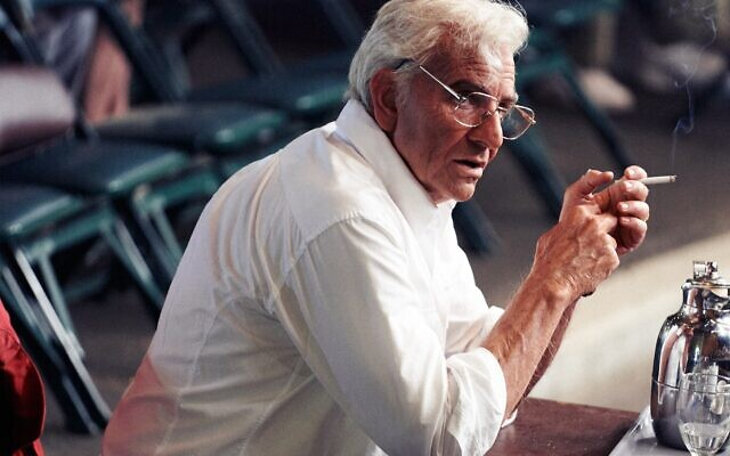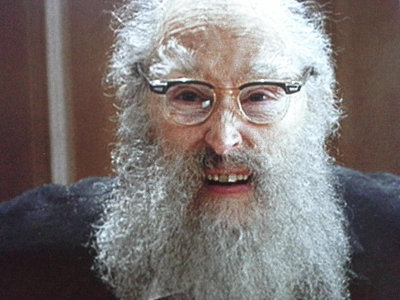 Vampire Weekend's Surprising Jewish Stories
Vampire Weekend's Surprising Jewish Stories


5 min read
Jewface is overblown. The primary consideration in casting should be believability, not race, color, orientation or religion.
Comedian Sarah Silverman believes that roles portraying Jews in film and television should go to Jewish actors. The issue has been called “Jewface” and Silverman has spoken out against the lack of Jewish representation in Hollywood, as some major Jewish roles have gone to non-Jewish actors.
Recent high-profile examples of this include Hellen Mirren playing Golda Meir in an upcoming bio-pic Golda, and Bradley Cooper as Leonard Bernstein in Maestro, which Cooper himself is directing (he received flak for the large prosthetic nose).
 Hellen Mirren as Golda Meir
Hellen Mirren as Golda Meir
It’s a long list: Steve Carrel plays a Jewish father in The Patient; Will Ferrell plays a Jewish psychiatrist in The Shrink Next Door; Michelle Williams won rave reviews and an Oscar nomination for her role as Mitzi Fabelman in Steven Spielberg’s semi-autobiographical The Fabelmans, playing Spielberg’s feisty mom; Julia Louis-Dreyfus plays the Jewish mom in Jonah Hill’s Guess Who’s Coming to Dinner remake, Your People; Felicity Jones portrays Ruth Bader Ginsburg in On the Basis of Sex; Rachel Brosnahan is the lead in The Marvelous Mrs. Maisel, a series replete with Jewish stereotypes.
At a time when people are ultra-sensitive to issues related to inclusion, diversity and cultural approbation, a number of critics are pointing out the blatant double standard when it comes to Jews. It’s another example of“Jews don’t count,” to use UK comedian David Baddiel’s title of his book which shows that when it comes to bigotry and racism, “Jews don’t count as a proper minority.”
Well, I’m not buying into the whole Jewface controversy.
 Bradley Cooper as Leonard Bernstein
Bradley Cooper as Leonard Bernstein
I see the double standard and hypocrisy when it comes to casting Jews, but I disagree with Silverman’s solution. The answer isn’t to cast only Jewish actors in Jewish roles, it’s to open up the casting net regarding all minorities and cast based on who is the best actor for this specific role, regardless of his race, orientation or religion.
Acting is the art of convincingly pretending to be someone that you are not. I’m sure Hellen Mirren will make a great Golda Meir – she’s a great actress. And Bradley Cooper will fully inhabit the role of Leonard Bernstein. Neither of them has to be Jewish to play those roles effectively. It may help, but it’s not essential if you’re a great actor.
The primary consideration in casting is believability. Can this actor convincingly play this role? Michelle Williams pulled it off. Meryl Streep won an Emmy for Outstanding Lead Actress in a Miniseries or Movie for Angels in America where she played a rabbi and a ghostly Ethel Rosenberg – two Jews, and one a male!
 Can you guess who this “rabbi” is?
Can you guess who this “rabbi” is?
Did cinema-goers get offended that Sacha Baron Cohen, a Jew, played Borat, a bumbling antisemitic Kazakhstani journalist? Who else could pull that off. Some people believe that only LGBQT actors should play LGBQT roles, but did anyone have an issue with Neil Patrick Harris, an openly gay actor, portraying a womanizer in the series How I Met Your Mother? He was acting, as were Heath Ledger and Jake Gyllenhaal in Brokeback Mountain.
Casting Emma Stone in Cameron Crowe’s Aloha received justified flak because this very white actress looks nothing like a woman who has one quarter Chinese and one quarter Hawaiian descent. She wasn’t believable – bad casting, not bad politics.
Yes, Hollywood should remove the double standard, but do it by keeping one factor in mind across the board: who is the best actor who can most convincingly portray that role.
The outrage behind Jewface is misguided. Yes, Hollywood should remove the double standard, but do it by keeping one factor in mind across the board: who is the best actor who can most convincingly portray that role.
Don’t confuse the issue of Jewface with cultural appropriation. This year saw a plethora of mainstream series and films telling authentic Jewish stories. Only Spielberg (and his Jewish co-writer Tony Kushner) could write The Fabelmans, and only writer-director James Gray could create Armageddon Time, about a Jewish family in Queens in 1980. If a non-Jew were to write these intimate stories about a minority to which he doesn’t belong, that would be cultural appropriation. That is not his story to tell; he can’t do it justice.
But a non-Jewish actor playing a Jew isn’t taking anything that doesn’t belong to him. He’s acting, and we all know he’s acting, and when done well he brings authenticity and honor to the role. That’s why a Middle-Eastern Jewish actor can convincingly play an Arab role on stage or screen – in fact, Ari'el Stachel, a Jew, won a Tony for Best Featured Actor in The Band’s Visit for playing Haled, an Egyptian jazz enthusiast.
As Jews, let’s save our kvetching for the genuine crises with which we need to urgently contend.

In general, I agree with Rabbi Coopersmith, and I am an advocate for diversity, equality, and inclusion. I do so with one exception: people with disabilities. And I say that for realism. Just putting someone in a wheelchair for several hours a day during filming, a person cannot physically act the same way that someone who is a wheelchair user does. This is the same for putting a white cane in the hand of a sighted person, teaching a few signs to a hearing person, or expecting someone to physically portray someone with Cerebral Palsy. I have seen some actors act convincingly, but not often.